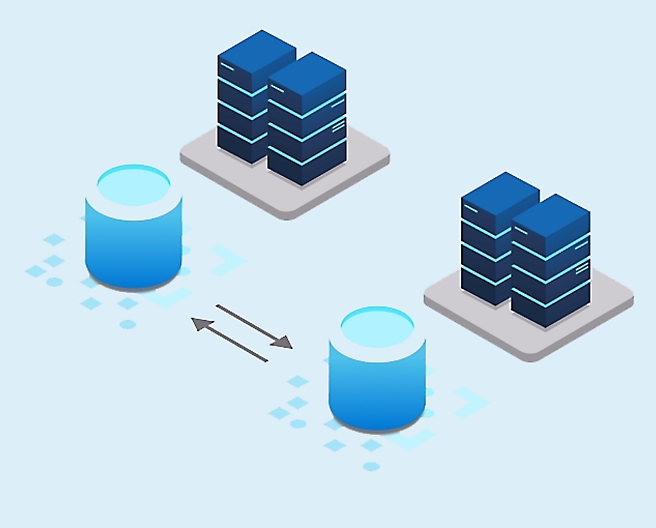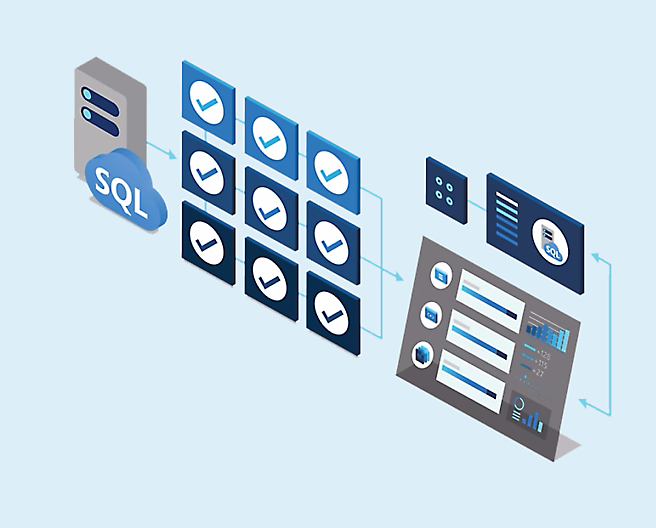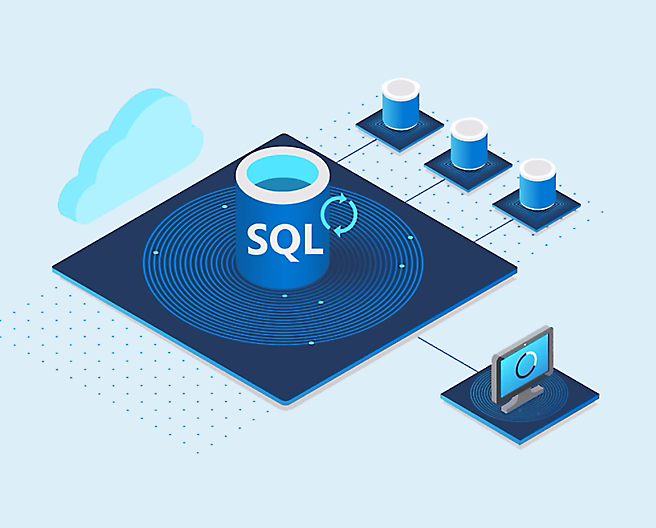

Experience SQL innovation on Azure
- Migrate to SQL Server on Azure Virtual Machines and keep complete SQL Server compatibility and OS-level access.
- Modernize SQL applications at scale and at your own pace on the fully managed Azure SQL Managed Instance.
- Support modern SQL cloud applications on Azure SQL Database with serverless compute and Hyperscale storage.
SQL Server consistency from ground to cloud
Fully managed and up to date
Use your SQL experience on Azure
Lowest total cost of ownership
Built-in, intelligent security
Embedded security and compliance
Full-time equivalent engineers dedicated to security initiatives at Microsoft.
Partners with specialized security expertise.
Compliance certifications, including over 50 specific to global regions and countries.


Save with unique Azure offers and competitive pricing
[1] Benchmark data is taken from a Principled Technologies report using recognized standards, HammerDB TPROC-C, HammerDB TPROC-H and Microsoft MSOLTPE, a workload derived from TPC-E. The MSOLTPE is derived from the TPC-E benchmark and as such is not comparable to published TPC-E results, as MSOLTPE results do not comply with the TPC-E Specification. The results are based on a mixture of read-only and update intensive transactions that simulate activities found in complex OLTP and analytics application environments. Price-performance is calculated by Principled Technologies as the cost of running the cloud platform continuously divided by transactions per minute or per second throughput, based upon the standard. Prices are based on publicly available US pricing in South Central US for Azure SQL Managed Instance and US East for AWS RDS as of April 2022 and incorporates Azure Hybrid Benefit for SQL Server, excluding Software Assurance and support costs. Performance and price-performance results are based upon the configurations detailed in the Principled Technologies report. Actual results and prices may vary based on configuration and region.
See how customers are innovating with Azure SQL

Get started today with Azure SQL
FAQs
- There are three primary considerations for selecting the right Azure SQL cloud service for your requirements–your overall objective, the extent to which you require operating system (OS) access or control, and the version of SQL Server you prefer. If you require control of the underlying OS due to compliance or software dependencies and prefer to remain on your current version of SQL Server, then rehosting to SQL Server on Azure Virtual Machines would be your best option. If, however, OS control is not a requirement and you prefer to be on the latest “versionless” SQL Server, then modernizing your existing applications or supporting modern cloud applications on fully managed solutions like Azure SQL Database or Azure SQL Managed Instance would be optimal.
- We recommend visiting the Azure migration and modernization center, where you can get the tools, resources, and guidance to begin your move to the cloud.
- Azure SQL is built upon the familiar SQL Server engine, so you can migrate applications with ease and continue to use the tools, languages, and resources you're familiar with. SQL Server on Azure Virtual Machines falls into the industry category infrastructure as a service (IaaS) and allows you to run SQL Server inside a fully managed virtual machine (VM) in Azure cloud services.
-
Azure SQL is a family of managed, secure, and intelligent products that use the SQL Server database engine on the Azure cloud platform.
o Azure SQL Database: Support modern cloud applications on an intelligent, managed database service, that includes serverless compute.
o Azure SQL Managed Instance: Modernize your existing SQL Server applications at scale with an intelligent fully managed instance as a service, with full compatibility with the SQL Server database engine. Best for most migrations to the cloud.
o SQL Server on Azure Virtual Machines: Lift-and-shift your SQL Server workloads with ease and maintain 100% SQL Server compatibility and operating system–level access.
- Beginning September 30th, 2025, Azure SQL Edge service will be retired. This change is in response to customer feedback and allows us to focus on enhancing our other offerings to ensure you receive the most advanced and reliable services. For more information, see our announcement.

Choose the Azure account that’s right for you

Azure cloud solutions































